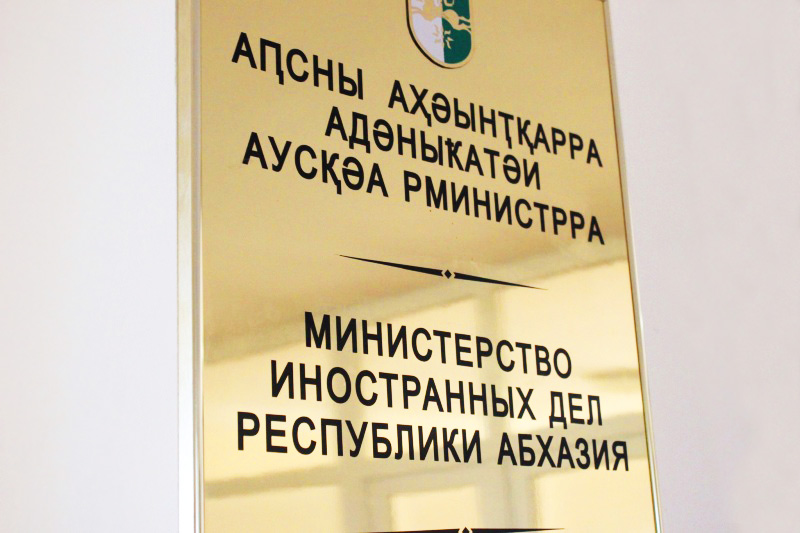Jens Stoltenberg, NATO Secretary General, speaking at the Paris School of Foreign Affairs conference, said that for him to question the right of a sovereign state to decide its own future is "almost a provocation."
This statement, made in the context of a discussion of NATO's strategy to involve Georgia and Ukraine in the alliance, is interesting from the perspective of identifying NATO member states' approaches to current international realities. As it follows from the statement of the head of NATO, the approaches of Brussels, formally equal and respectful towards all members of the international community, are in fact extremely selective and suffer from obvious tendentiousness.
According to Stoltenberg, the sovereignty of such countries as Georgia or Ukraine is sacred for NATO, and the head of the alliance is ready to pay lip service to protecting these countries from any, even imaginary encroachments.
The head of NATO does not even conceive of questioning the right of Georgia and Ukraine to decide their own future. At the same time, following Stoltenberg's logic, there are other states that do not fall under NATO's criteria and which, in his view, have no right to decide their own fate.
There is no doubt that the leadership of NATO actually places the Republic of Abkhazia in the latter category. And no objective signs of the statehood, including those fixed by international law, nor the actual existence of the Republic of Abkhazia as an independent state for more than 25 years and its recognition by the UN Security Council member-states have any impact on NATO's politicized position..
The North Atlantic Alliance cannot give up its Cold War mentality and prefers to act in a spirit of bloc confrontation, contributing to the division of the world into warring camps. It is superfluous to point out the explosive potential of such a NATO strategy in relation to the South Caucasus. Today, this strategy is manifested in regular exercises of the Western alliance with Georgia and in Tbilisi's military build-up.
The responsibility for such an adventurist policy should also be clearly understood. The events of 2008 should serve as an eloquent reminder to Brussels and Washington of the consequences of flirting with Georgia and drawing it into the Western military bloc.
The current course of confrontation and the formation of spheres of influence, which the NATO Secretary General has verbally condemned, should be reconsidered in the interests of long-term peace in the South Caucasus. Such a revision is impossible without abandoning the practice of double standards and the division of countries in the region into insiders and outsiders. Only then will it be possible to confidently declare the achievement of a world order that will be based on rules and respect for all nations, regardless of their potential.
This statement, made in the context of a discussion of NATO's strategy to involve Georgia and Ukraine in the alliance, is interesting from the perspective of identifying NATO member states' approaches to current international realities. As it follows from the statement of the head of NATO, the approaches of Brussels, formally equal and respectful towards all members of the international community, are in fact extremely selective and suffer from obvious tendentiousness.
According to Stoltenberg, the sovereignty of such countries as Georgia or Ukraine is sacred for NATO, and the head of the alliance is ready to pay lip service to protecting these countries from any, even imaginary encroachments.
The head of NATO does not even conceive of questioning the right of Georgia and Ukraine to decide their own future. At the same time, following Stoltenberg's logic, there are other states that do not fall under NATO's criteria and which, in his view, have no right to decide their own fate.
There is no doubt that the leadership of NATO actually places the Republic of Abkhazia in the latter category. And no objective signs of the statehood, including those fixed by international law, nor the actual existence of the Republic of Abkhazia as an independent state for more than 25 years and its recognition by the UN Security Council member-states have any impact on NATO's politicized position..
The North Atlantic Alliance cannot give up its Cold War mentality and prefers to act in a spirit of bloc confrontation, contributing to the division of the world into warring camps. It is superfluous to point out the explosive potential of such a NATO strategy in relation to the South Caucasus. Today, this strategy is manifested in regular exercises of the Western alliance with Georgia and in Tbilisi's military build-up.
The responsibility for such an adventurist policy should also be clearly understood. The events of 2008 should serve as an eloquent reminder to Brussels and Washington of the consequences of flirting with Georgia and drawing it into the Western military bloc.
The current course of confrontation and the formation of spheres of influence, which the NATO Secretary General has verbally condemned, should be reconsidered in the interests of long-term peace in the South Caucasus. Such a revision is impossible without abandoning the practice of double standards and the division of countries in the region into insiders and outsiders. Only then will it be possible to confidently declare the achievement of a world order that will be based on rules and respect for all nations, regardless of their potential.
